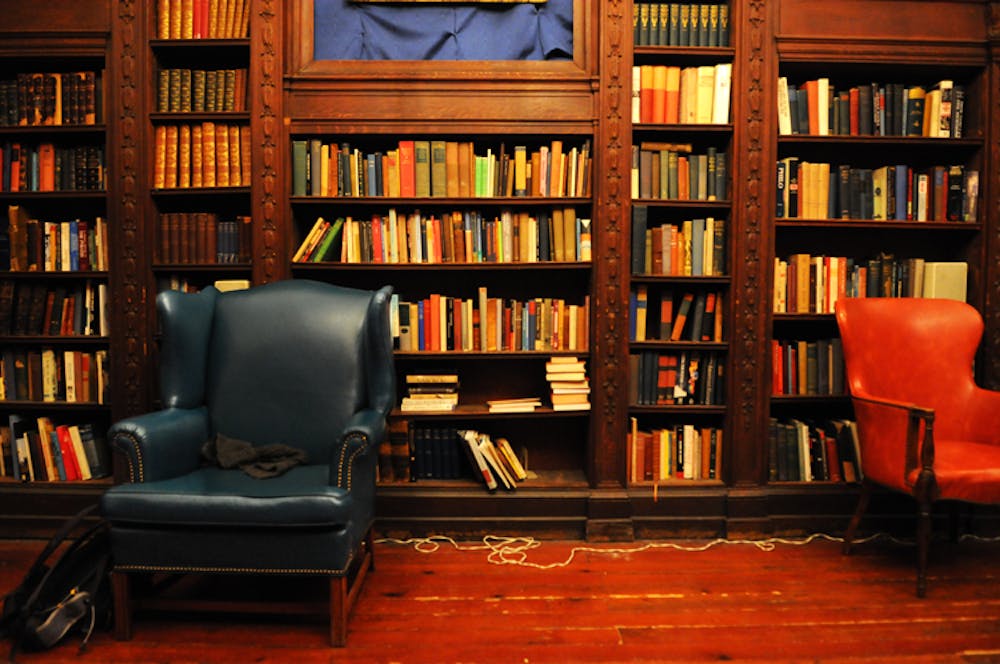On the top of College Hall, there’s a playhouse for one of Penn’s smartest cliques to sit and cogitate. Their offices are so old, authentic and wooden that in the winter, the members of the Philomathean Society sometimes wear academic robes just to stay warm.
Philo was founded in 1813, when Penn was just a “glorified boys high school,” said its Moderator, Emily Kern C ‘12. The mission, then and now, is to raise the intellectual caliber of the school and enlarge the minds of its members. Outside of their meetings, which always feature a debate (sometimes with chicken noises only), they host scholarly events and discussions open to all of Penn. Last month’s panel on the Biology of Race was “packed to the gills,” said Paul Mitchell, C ‘13.
The Philomathean Society’s members' earnest pursuit of knowledge can sometimes differentiate them from their peers. Philos are some serious young people, the sort that are “historians” not “majoring in history.” Self–identifying as an intellectual can’t not be pretentious.
But that’s what it takes to climb through Philo’s three–step selection process. First, there’s the interview. A sophomore who got fed up and dropped it said that she was asked to insult each of the Philos interviewing her. She went for the clothes. Then there’s a three–to–five minute discussion on an obscure academic topic of specific interest to the candidate. Like typefaces or Sputnik and US science education. The final challenge is a creative submission of any medium. It seems Philos are fond of saying that the only restriction is that it fit through the door. “And by corollary, up the stairs,” Emily added.
Street couldn’t wrestle the precious admissions rate from Emily, since she said it changes every semester. Getting in isn’t easy, but once you’re in, you’re invited to one of the Philomathean parties scheduled for special occasions, like after initiations.
“Which are very tame,” Emily said. “Just being clear.”
This is a feat of restraint, considering these parties involve a lot of German techno music.
Other colleges have similar groups, many of which are relics from the 19th century, when literary societies were hip. Philo isn’t officially connected to any other societies, but they do interact with them sometimes. The Philodemic Society at Georgetown in particular. “They are horrible people,” Emily said. “They told us, ‘Of course we have girls in our Society, they do all our cooking.’”
Penn’s Philo is friendlier. “From the get go, Philo was a place where there wasn’t any superiority or snobbiness about learning or being intellectual,” Emily says. “It was just like, we do cool shit.”

